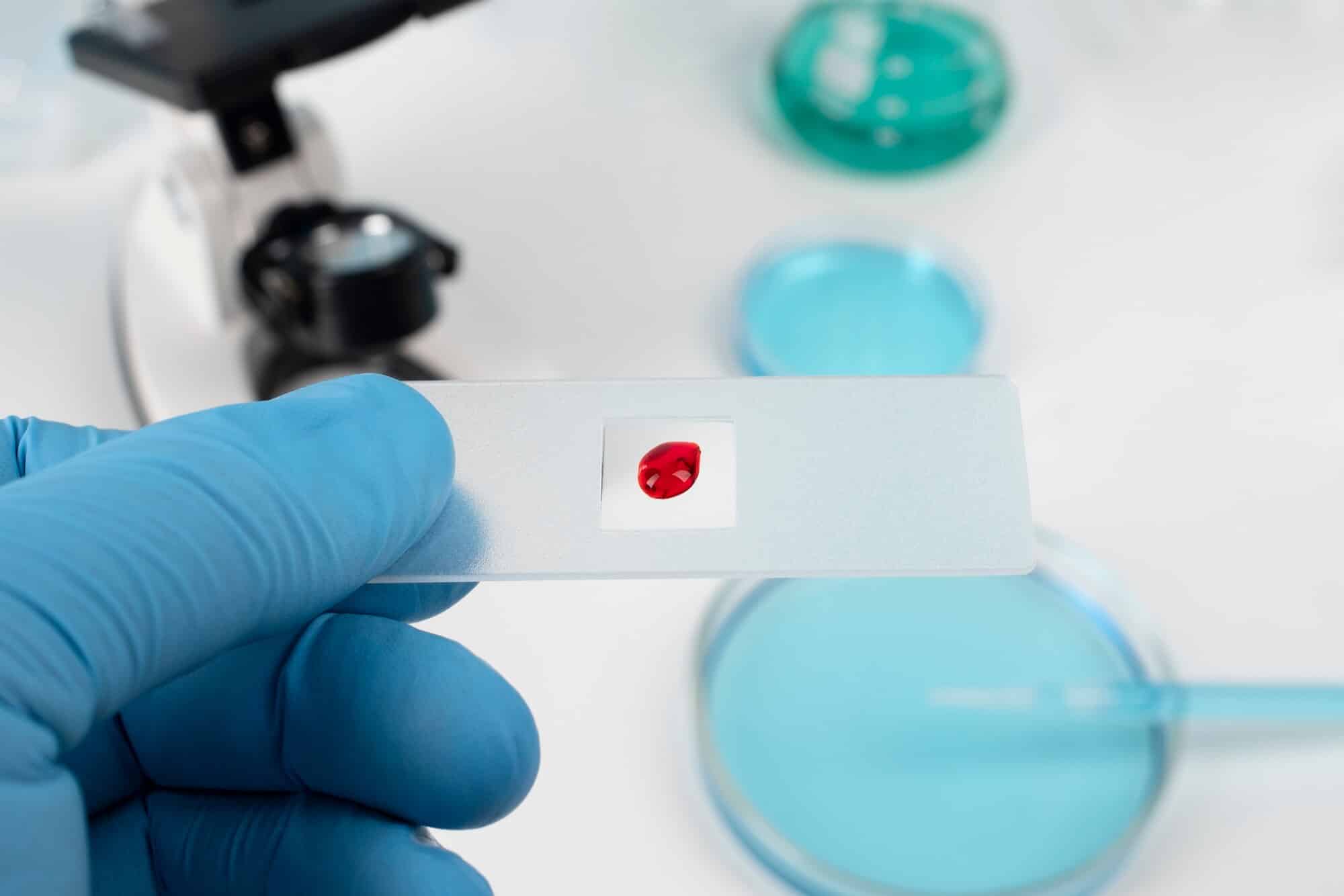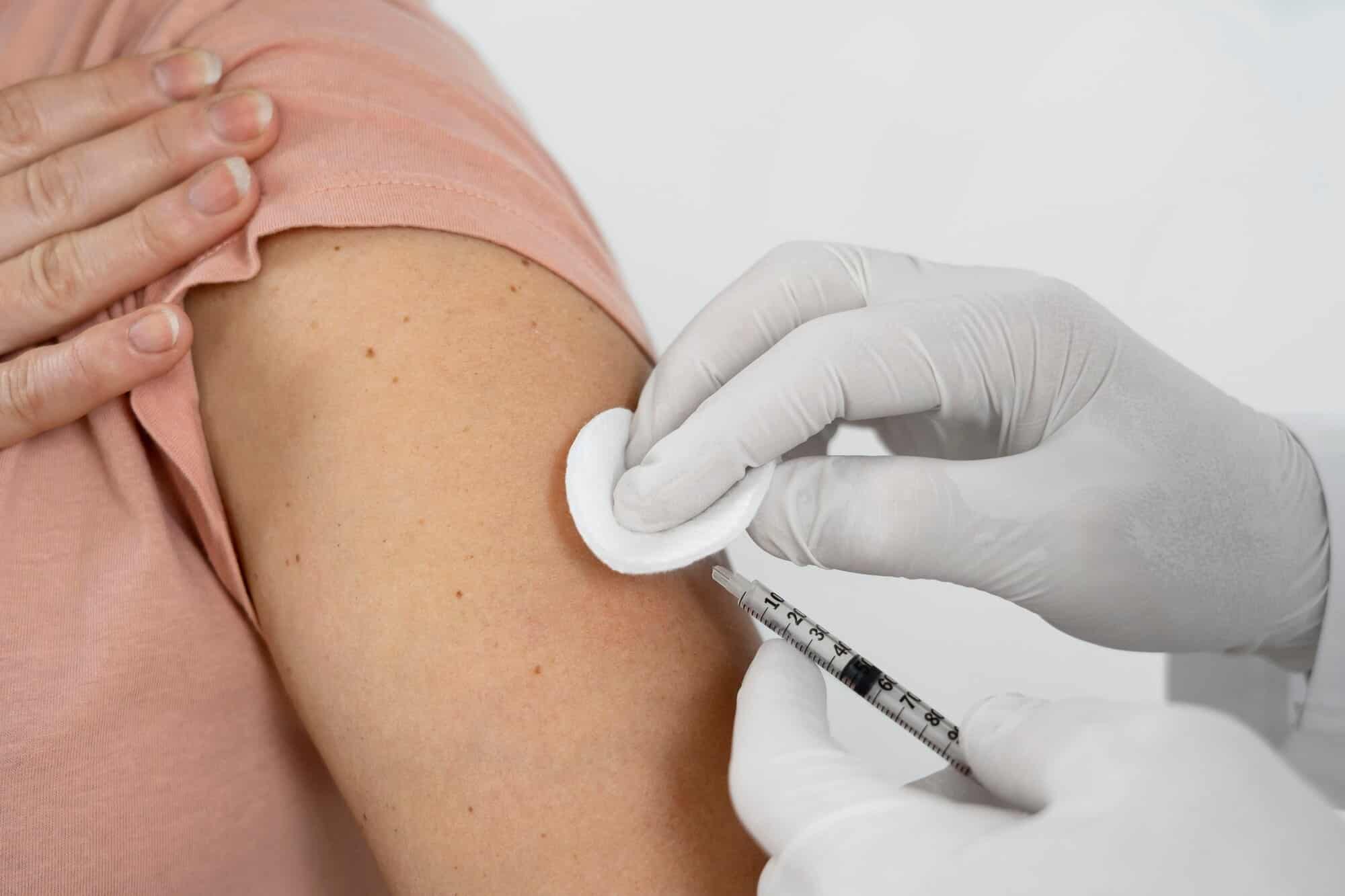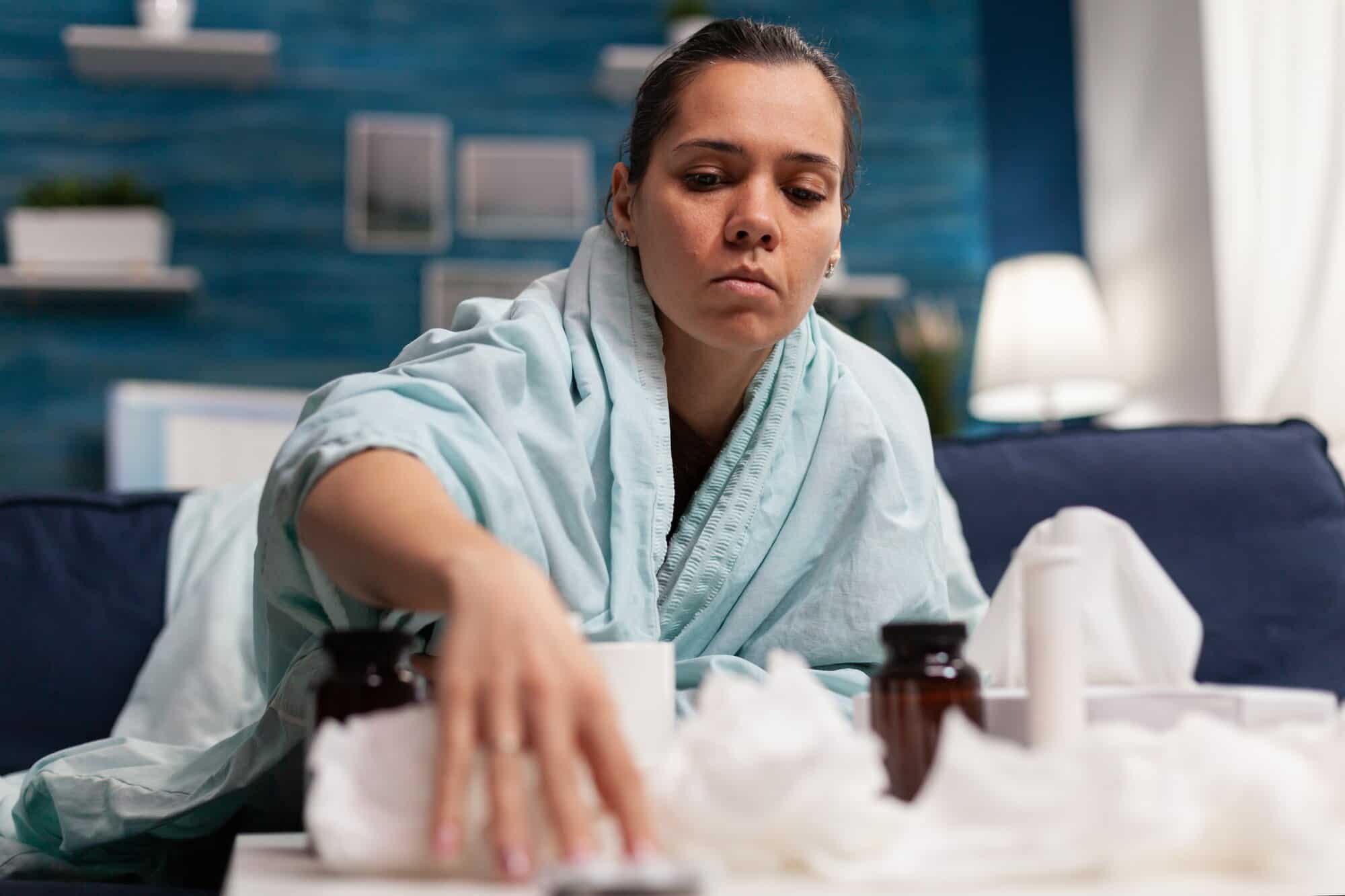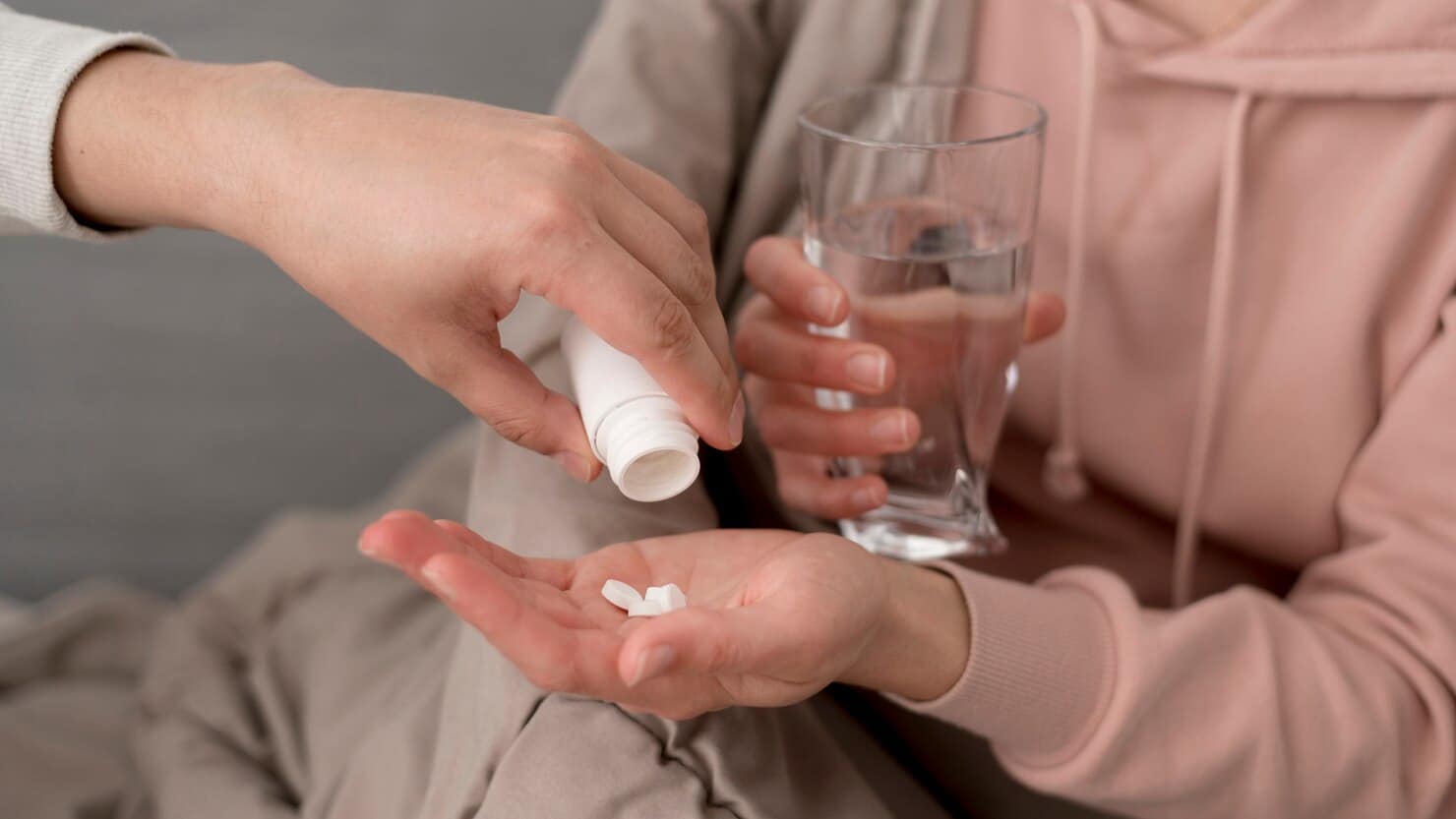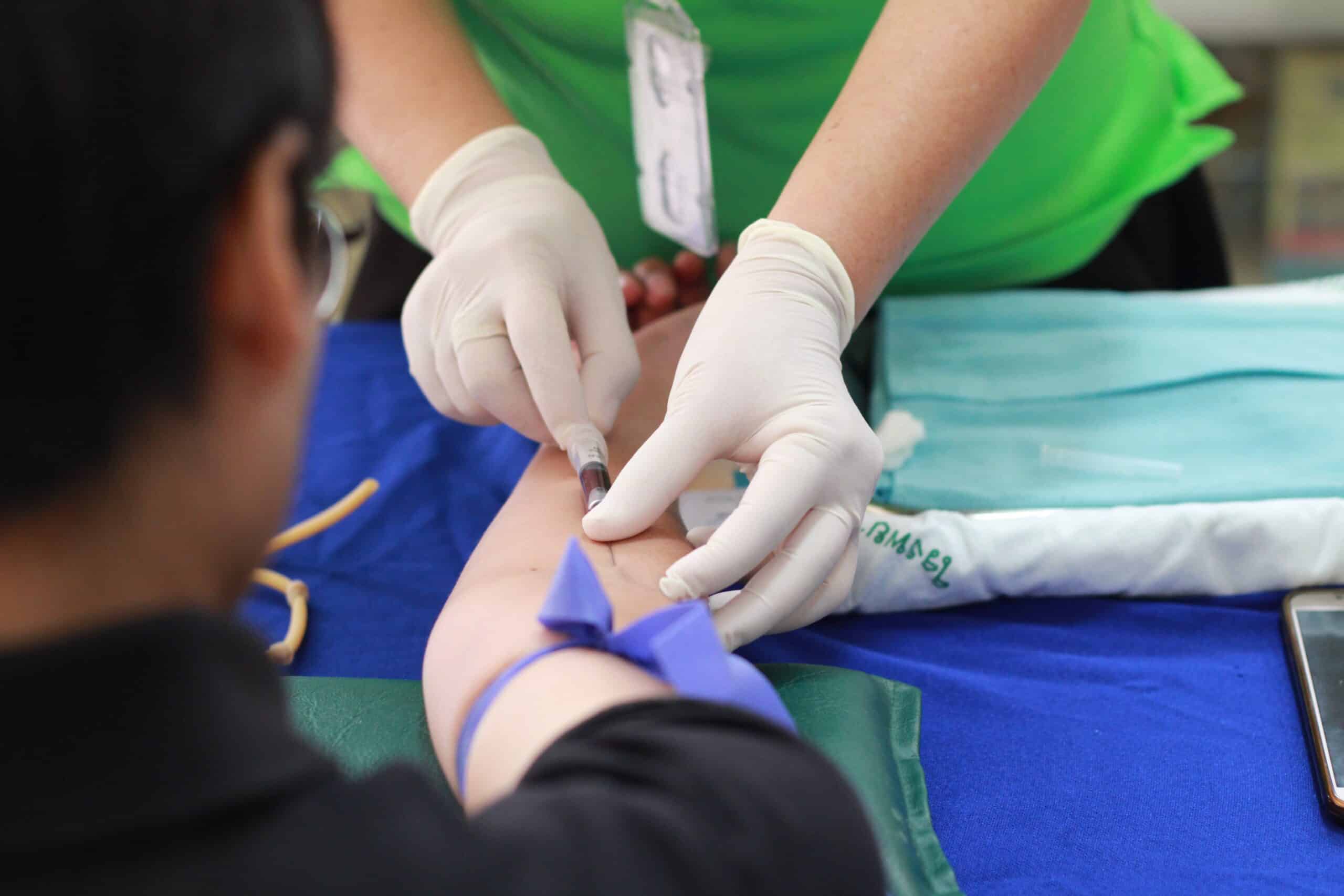
A sexually transmitted disease or infection is any infection spread via sexual contact, usually through oral, vaginal, or anal sex.
The question you might ask yourself is, What are the most common STDs? In this blog, we will discuss some of the 7 common STDs in the United States.
Chlamydia
Chlamydia is one of the most common STDs. Chlamydia is a bacteria that infects the cervix or urethra in women the urethra in males, and can even affect the throat or rectum.
In 2021, the CDC reported 1,644,416 cases of Chlamydia infection.
Most Common Symptoms
Some of the most common symptoms of Chlamydia include:
- Pain or burning sensation during urinating.
- Unusual vaginal or penile discharge.
- Painful or uncomfortable sex (mostly in females).
- Irregular menstrual bleeding.
- Testicular pain in males.
Treatment Methods
Chlamydia can be treated with antibiotics. Your doctor might prescribe you a single dose, or you might need to take an entire treatment course, depending on your infection’s severity and overall health. The treatment usually consists of a 7-day antibiotics course. Normally, Azithromycin or Doxycycline are used.
People infected with Chlamydia should try to abstain from sexual activity until their treatment is complete. It will prevent the disease from dispersing to others. They should also notify all recent sex partners.
Most insurance plans will cover both your Chlamydia testing and the treatment. Though, you might still be expected to pay part of the expenses.
Gonorrhea
Gonorrhea is also caused by a bacteria. Gonorrhea can infect both males and females. Generally, Gonorrhea causes infection of the urethra in males, cervix in females, and rectum or throat.
Gonorrhea is commonly spread during vaginal, oral, or anal sex. But, unborn babies of mothers carrying the disease can be infected during childbirth. In babies, Gonorrhea can affect the eyes.
In 2021, the CDC reported a total of 70,151 cases of Gonorrhea.
Most Common Symptoms
While the symptoms of Gonorrhea can differ for males and Females, some of the more common signs of Gonorrhea are:
- Experiencing pain or burning sensation when urinating.
- Unusual vaginal/penile discharge..
- Irregular menstrual bleeding in females.
- Itching or irritation around the anus.
- Lower abdominal pain
Treatment Methods
Gonorrhea is usually treated with antibiotics as it is a bacterial infection. Generally, uncomplicated cases of Gonorrhea can be treated with an antibiotic called ceftriaxone. It is generally given as a shot.
After getting the treatment, you are still at risk of spreading the infection to others, so it’s wise to refrain from sex for at least 7- days.
Most insurance plans cover testing and treatment for Gonorrhea. However, if you are still deciding about your insurance plans, call your doctor to find out how much you have to pay from your end.
Syphilis
Syphilis is a common STD. It is known to be caused by a bacterium called Treponema pallidum and can lead to serious health consequences if left untreated.
Syphilis is transmitted when you come into contact with Syphilis infected areas or sores. These sores can usually be found on the genitals, mouth or rectum.
In 2021, the CDC reported a total of 176,713 cases of Syphilis.
Most Common Symptoms
Syphilis can have several stages of development, with varying symptoms. It is advised that you look for possible signs and get tested right away; some of the common symptoms of Syphilis are:
- Rashes appear on your body.
- Sores on the genitals, mouth in the throat, or the anus.
- Fever.
- Fatigue or general tiredness.
- Sore throat.
- Weakness or lethargy.
- Hair loss.
- Sudden or unexplained weight loss.
- Swollen and painful lymph nodes.
- Headaches.
- Confusion.
- Hearing Loss.
- Eyesight issues.
- Heart issues.
- Stroke.
- Dementia.
- Balance issues.
Treatment Methods
If timely diagnosed and treated in the early stages of infections, Syphilis can easily be a treatable STD. Antibiotic medication has proven to be effective for all stages of the condition. A single shot of long-acting Benzathine penicillin G can cure more cases of Syphilis. However, in its later stages, your doctor may recommend three doses of Benzathine penicillin G but at weekly intervals to help treat the symptoms caused by the infection.
If you are being treated for Syphilis, then it is wise that you avoid any sexual contact until your sores heal entirely. You should also notify your sexual partners of your disease so they can also get tested in time.
Most insurance plans cover Syphilis testing for adults with a higher risk for Syphilis, including all pregnant women. It implies that you should be able to get tested free of cost. Talk to your insurance provider or doctor to learn more about your insurance plan.
Mycoplasma genitalium (MG)
Mycoplasma genitalium (MG), caused by a bacteria, is emerging as one of the leading causes of infection in the cervix. In males, MG causes swelling and irritation of the urethra in the penis. MG spreads through having unprotected sex with someone who already has the infection. Although, it is still unclear if having oral sex can spread the disease.
In 2017 – 2018, the National Health and Nutrition Examination Survey showed an overall MG frequency of 1.7% amongst people aged 14-59.
Most Common Symptoms
Some of the most common symptoms observed if you are suffering from MG are:
- Unusual or foul-smelling vaginal/penile discharge.
- Irritated vagina or Itching.
- Painful urination.
- Pelvic discomfort or pelvic pain.
- Abdominal pain.
- Irregular menstrual bleeding.
- PID (pelvic inflammatory disease).
Treatment Methods
The general course of treatment for all cases of MG is usually a two-step therapy for 7-days, which includes a main antibiotic that is aided with an additional dose of supportive antibiotics. The main is doxycycline, followed by an extra dose of either moxifloxacin or azithromycin.
Preventive measures usually include refraining from sex until your treatment ends. Most insurance plans cover the medication used for Mycoplasma genitalium (MG) treatment. However, you should call your insurance provider and discuss your options.
Trichomoniasis
Trichomoniasis is considered to be one of the most common STIs. It is known to affect more females than males.
Trichomoniasis is essentially a parasitic infection. The parasite can spread via genital contact during sex.
In 2018, the CDC reported a total of 2.6 million Trichomoniasis infections.
Most Common Symptoms
The infection can often be confused with fungal infections as some symptoms are similar. Symptoms of Trichomoniasis infections include:
- Frothy discharge from vagina/penis.
- Strong or foul-smelling vaginal odor.
- Painful intercourse.
- Irritation and Itching in the genital area.
Treatment methods
Treatment of Trichomoniasis consists of taking an oral medication that has proven effective against infections caused by Trichomoniasis. Treatment options can include 1 megadose or several lower doses of antibiotics for 5 to 7 days, depending on the severity of your infection. Usually, Metronidazole is used to treat Trichomoniasis, and Tinidazole is used as the alternative treatment option.
You are advised not to engage in any sexual activity until your treatment is finished. Wait for the symptoms to go away. It generally takes around one week after you finish your last antibiotic dose.
If you have health insurance testing and treatment is usually covered. The amount you will have to spend also depends on your insurance plan and whether the drugs prescribed by your doctor are generic or preferred.
Human Papillomavirus (HPV)
Human Papillomavirus (HPV) is one of the easiest STDs to get. HPV is a viral infection that is commonly known to cause warts. Currently, there are 100 known varieties of human papillomavirus (HPV). While some types of HPV infection can cause warts, others cause more dangerous health consequences, such as cancer.
You can contract HPV via vaginal, anal, or oral sex with an infected person. However, it is known to be more commonly spread during vaginal or anal sex. HPV is also known as the most common STD in the United States.
According to the CDC, during 2011 – 2014, the frequency of human papillomavirus (HPV) for adults aged 18 – 69 was 7.3%.
Most Common Symptoms
Most of the general symptoms of HPV include warts or blisters on your body, mainly the genital area.
Treatment Methods
Currently, there is no treatment for HPV. However, you can get vaccinated against this disease. Usually, the symptoms of HPV, such as warts, will go away on their own, but you have to discuss with your healthcare provider if your symptoms persist.
Meanwhile, refrain from engaging in sexual activities until your symptoms disappear; this will help prevent the disease from spreading.
Herpes
Herpes (HSV) is an STD known to be caused by a virus. Herpes exists in two categories: HSV1 and HSV2. HSV1 causes cold sores, and HSV2 is regarded as the one usually responsible for causing genital sores.
The CDC reported a total of 572,000 new infections of Herpes in the US every single year.
Most Common Symptoms
Symptoms of a possible Herpes infection can start about 2 – 12 days after exposure to the virus. Most people who are infected with HSV can have no symptoms or show very few signs, such as:
- Painful or itching genital area
- Sores blisters around the genital area, anus, or mouth
- Painful ulcers
- Pain during peeing
- Enlarged lymph nodes in your groin
Treatment Methods
There is no treatment for Herpes. Medicines exist to help ease the symptoms. The medication used can also help to reduce the risk of infecting others. Condoms are also an effective way to help prevent the spread of the virus via sexual practices. It is wise to avoid all forms of sexual activities until your symptoms clear up. However, some medications are used to treat the symptoms caused by Herpes, such as acyclovir, famciclovir, or valacyclovir.
Medicare and health insurance plans cover most generic drugs for herpes treatment. But at some pharmacies, you can find coupons that might lower the cost if you are uninsured. So, it’s better to research and weigh all your options before buying the prescribed drugs.
Conclusion
STDs are prevalent and can easily be transmitted. You must reduce your risk of contracting infections by practicing safe sex, getting tested, and getting all the available vaccines. Additionally, routine screening for common STDs can help you determine if you or your partner are carrying any infections so that you can get proper treatment and prevent the disease from spreading to others. Equality Health focuses on sexual health by providing prevention, STD testing, STD treatment, HIV Testing, and HIV Treatment services, enabling you to lead a healthy lifestyle.


